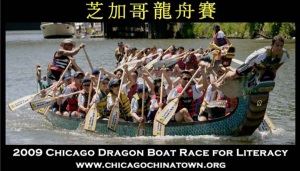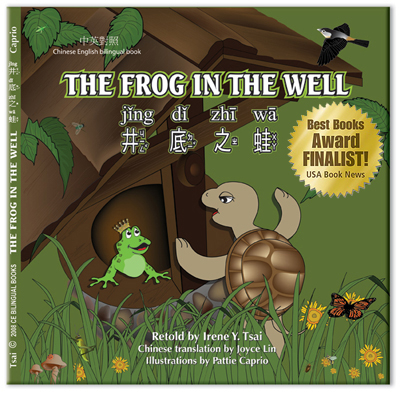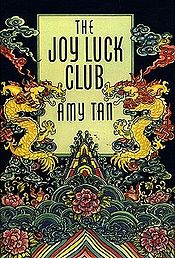
Colorin Colorado
Below is an article taken from Colrín Colorado, a bilingual (Spanish and English) website for families and educators of English Language Learners. It offers five tips for helping your child continue to learn over the summer break. Scroll down for the English version. Enjoy!
Cinco consejos gratuitos y sencillos para el aprendizaje de verano
Por: Brenda McLaughlin y Jane Voorhees Sharp (2008)
Existen estudios bien documentados sobre cuánto de lo ya aprendido pierden los niños durante el verano. Harris Cooper de la Universidad Duke observa que “en general, durante el verano los niños experimentan una pérdida promedio de lo aprendido en lectura y matemáticas que equivale a un mes de aprendizaje” (1996).
La cuestión es que los niños no tienen por qué perder nada de lo aprendido durante el verano. En realidad, usted puede alentar a su hijo a disfrutar del verano y a aprender siguiendo estos cinco consejos gratuitos y sencillos. ¡Pruébelos!
1. Leer todos los días
Estudios de investigación
A nivel de la escuela media, leer cuatro o cinco libros durante el verano influye de manera positiva en el nivel de lectura que puede alcanzar el niño en otoño, comparable con la asistencia a la escuela de verano. (Kim, 2004)
Sugerencias
Lleve a sus hijos a la biblioteca con frecuencia y permítales que escojan sus propios libros. Escuchen libros en audio. Suscríbanse a una revista. Túrnense para leerle el uno al otro. Permítales a los niños quedarse despiertos hasta media hora más si es para leer.
2. Usar las matemáticas todos los días
Estudios de investigación
El área donde se registra la mayor pérdida que sufren los niños durante el verano es en el área de los cómputos matemáticos, a un nivel de 2.6 meses promedio de aprendizaje. (Cooper, 1996)
Sugerencias
Practiquen las tablas de multiplicar aumentando 7 veces (o hasta 8 ó 9) el valor de cada punto en un juego de baloncesto. Pídales a los niños que pidan cambio en la ventanilla de autoservicio. Enséñeles a los niños cómo ingresar en www.coolmath.com en inglés) para jugar juegos de matemáticas. Invente problemas de matemáticas cuando viajan en automóvil o durante la cena.
3. Salir a jugar
Estudios de investigación
Los programas de actividad física intensa tienen efectos positivos en los logros académicos, además de mayor concentración, mejores calificaciones en pruebas de matemáticas, lectura y escritura, y menos casos de mal comportamiento. (Journal of School Health, 1997)
Sugerencias
Busque opciones para que su hijo haga actividad durante 60 minutos por día. Sugiérale pasear el paseo del vecino, ir a nadar, jugar al badminton o al fútbol, salir a caminar o andar en bicicleta en familia. Busque formas seguras y divertidas de salir a jugar durante todo el año. Visite los sitios de Internet Los niños en su casa, PBS Padres, y los Centros para el Control y la Prevención de Enfermedades para consultar más ideas y información en español.
4. Escribir todas las semanas
Estudios de investigación
La mayoría de los estudiantes de primer año que ingresan en instituciones postsecundarias para cursar un título de grado deben tomar clases de refuerzo de escritura más que clases de lectura. (NCES 2003)
Sugerencias
Pídale a su hijo que les escriba una carta por semana a sus abuelos, parientes o amigos. Anímelo para que escriba un diario de verano. Pídale que escriba la lista de las compras para la familia. Organice un proyecto del amigo invisible por carta para adultos y niños en su iglesia o comunidad.
5. Hacer una buena acción
Estudios de investigación
Los estudiantes aprenden más y “actúan” menos cuando participan en actividades que ayudan a su desarrollo socioemocional, como el servicio comunitario. (The Collaborative for Academic Social and Emotional Learning, 2004)
Sugerencias
Incentive a su hijo para que ayude a sus vecinos o amigos. Puede ofrecerse como voluntario de un grupo local o participar de un proyecto educativo de servicio. Sugiérale que reserve parte de su asignación para donarla. Miren juntos el sitio de Internet Big Help de Nickelodeon (en inglés) y el sitio de Parent Link Rhode Island (en español) para tener más ideas.
Five Free and Easy Tips for Summer Learning: Research Pointers and What You Can Do
By: Brenda McLaughlin and Jane Voorhees Sharp (2005)
Research about how much children lose ground over the summer is well documented. Harris Cooper of Duke University notes, “Overall, children experience an average summer learning loss across reading and mathematics of about one month” (1996).
The thing is, though, kids don’t have to lose over the summer. In fact, you can encourage your child to have a summer of fun and learning with these five free and easy things to do. Try them out!
1. Read Every Day
The Research
At the middle school level, reading four to five books over the summer has a positive impact on fall reading achievement comparable to attending summer school (Kim, 2004).
Suggestions
Take your kids to the library often and let them choose which books to check out. Listen to books on tape. Subscribe them to a magazine. Take turns reading to each other. Allow your kids to stay up a half hour later at night as long as they’re reading.
2. Use Math Every Day
The Research
The largest summer learning losses for all children occur in mathematical computation, an average of 2.6 months (Cooper, 1996).
Suggestions
Practice the multiplication tables by making each point in a basketball game worth 7 points (or 8 or 9). Ask your kids to make change at the drive-thru. Show your child how to go to Cool Math to play math games. Make up math word problems in the car and at the dinner table.
3. Get Outside and Play
The Research
Intense physical activity programs have positive effects on academic achievement, including increased concentration; improved mathematics, reading, and writing test scores; and reduced disruptive behavior (Journal of School Health 1997).
Suggestions
Find ways to ensure your child is active for 60 minutes each day. Have him or her walk the neighbor’s dog, go swimming, play badminton or soccer, take walks, or go for family bike rides. Look for safe, fun ways to play outside together year-round. Go to Family Corner Magazine and PBS Parents for more ideas.
4. Write Every Week
The Research
More freshmen entering degree-granting postsecondary institutions take remedial writing courses than take remedial reading courses (NCES 2003).
Suggestions
Ask your child to write a weekly letter to his or her grandparents, relatives, or friends. Encourage him to keep a summer journal. Have her write the family’s grocery list. Organize a secret pal writing project for adults and kids at your church or in your community.
5. Do a Good Deed
The Research
Students learn better and “act out” less when they engage in activities to aid in their social-emotional development, such as community service (The Collaborative for Academic Social and Emotional Learning, 2004).
Suggestions
Encourage your child to help out neighbors or friends. He or she can volunteer with a local group or complete a service learning project. Suggest that your child set aside part of his allowance for charity. Look at Nickelodeon’s Big Help web site together for more ideas.
Adapted from a presentation by Brenda McLaughlin, Director of Research and Policy, Center for Summer Learning, Johns Hopkins University and Jane Voorhees Sharp, Office of Early Care and Education, New Jersey Department of Human Services.







